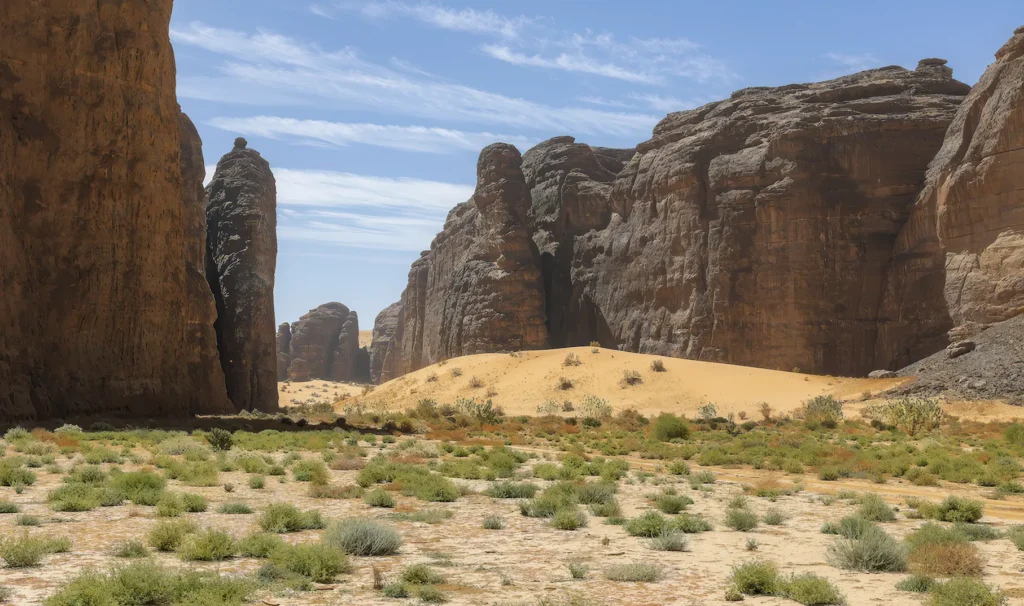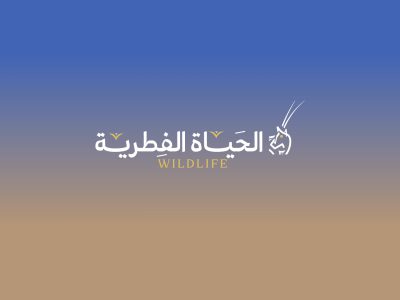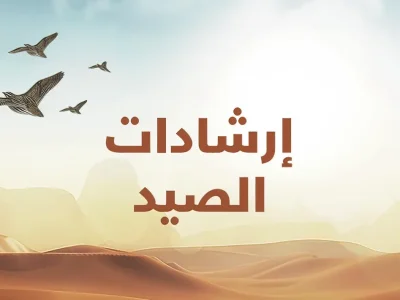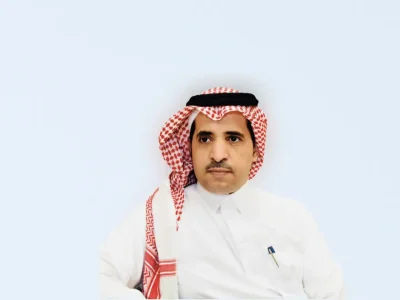In April 2024, a significant environmental event took place in Riyadh—the inaugural Protected Areas HIMA Forum. This landmark gathering attracted prestigious guests from around the world, all dedicated to the conservation of natural habitats and wildlife. Under the patronage of His Excellency Eng. Abdulrahman AlFadley, Minister of Environment, Water & Agriculture and Chairman of the National Center for Wildlife (NCW), the forum demonstrated Saudi Arabia’s growing commitment to global environmental conservation and sustainability.
Conservation has long been ingrained in Arab culture and has remained a priority for Saudi leadership. In 1986, the National Commission for Wildlife Conservation and Development was formed, with one of its first initiatives being the creation of protected areas across the Kingdom. These efforts culminated in the formation of the National Wildlife Development Authority in 2019, which was later renamed the National Center for Wildlife. The NCW has revitalized the Kingdom’s conservation strategies, directing resources to address threats facing both terrestrial and marine wildlife. Their approach emphasizes preserving biodiversity and habitats while promoting community involvement and achieving sustainable environmental outcomes.
In 2021, the NCW launched the 30×30 goal as part of the Saudi Green Initiative, pledging to protect 30% of Saudi Arabia’s land and sea by 2030. This ambitious goal underscores the Kingdom’s dedication to global biodiversity and environmental sustainability. At the 2022 UN biodiversity conference (COP15), countries around the world reached a target to restore 30% of degraded ecosystems—terrestrial and marine—by 2030, further aligning with Saudi Arabia’s conservation aims.
The HIMA Forum emerged as a critical event, providing a platform for international and local experts to exchange ideas and collaborate on global, regional, and national conservation efforts. The forum helped to create a joint platform for sharing knowledge and setting a clear direction for future conservation strategies.
Dr. Mohammad Qurban, CEO of the National Center for Wildlife, described the organization of the forum as a clear reflection of Saudi Arabia’s leadership in global environmental initiatives. “This initiative is part of a strategic plan to
enhance the national system for protected areas, setting a clear direction for the Kingdom’s efforts to safeguard vital natural sites for biodiversity,” he noted.
Dr. Qurban further emphasized the importance of engaging international experts in improving the planning and management of protected areas, leading to more effective conservation efforts with wide-reaching environmental, social, and economic impacts.
The forum, which spanned four days, featured a variety of main sessions, workshops, and side meetings, as well as field visits to the Ibex Reserve and the King Khalid Royal Reserve. Participants had the opportunity to see firsthand the Kingdom’s conservation efforts and explore the unique wildlife and significant landmarks these reserves hold.
HIMA, derived from the Arabic word for sanctuary, became the premier environmental event of the year. Its importance extended beyond its focus on conservation; it served as a collaborative platform where both international and local experts could share insights and aspirations. A significant part of the forum highlighted the role of community participation in conservation. Engaging local communities strengthens conservation efforts and fosters a deeper connection between people and the environment.

Prominent international and national organizations attended the forum, including:
United Nations Environment Programme World Conservation Monitoring Centre (UNEP)
International Union for Conservation of Nature (IUCN)
The forum also facilitated the signing of cooperation agreements and memoranda of understanding, further solidifying the Kingdom’s conservation partnerships.
Cooperation Agreements and Memoranda of Understanding
During the forum, several key agreements were signed to enhance collaboration on wildlife conservation:
NCW and IUCN West Asia (ROWA): Dr. Muhammad Ali Qurban, CEO of NCW, and Dr. Hany El Shaer, Regional Director at IUCN ROWA, signed an agreement to strengthen cooperation in wildlife conservation and biodiversity protection.
NCW and Oxford University: A memorandum of understanding was signed by Dr. Qurban and Prof. Tim Coulson, Head of the Department of Biology at Oxford University, to establish a framework for cooperation on wildlife research, academic meetings, and biodiversity enrichment in Saudi nature reserves.
NCW and Friends of Wildlife Society: Dr. Qurban and Saleh Al-Hamidi, CEO of the Friends of Wildlife Society, formalized a partnership to focus on collaborative wildlife conservation, sustainable development, and raising community awareness.
NCW and Rahma Society: Dr. Qurban and Abdul Aziz Al-Aqil, CEO of Rahma Society
for Animal Welfare, signed an agreement to strengthen collaboration on environmental, wildlife, and biodiversity matters. This partnership aims to combine resources and expertise to advance conservation efforts in Saudi Arabia.
Key Recommendations from the HIMA Forum
The forum concluded with a series of recommendations designed to guide future conservation efforts:
Encourage community participation in conservation management and natural resource distribution to ensure sustainable protection at national and regional levels.
Diversify funding sources for protected areas to reduce reliance on government support.
Assess the environmental services offered by protected areas and strengthen national legislation to align with international standards.
Promote awareness of marine initiatives that support the protection of marine ecosystems.
Accelerate the establishment of protected marine and terrestrial areas to meet the 30×30 goal, in collaboration with key stakeholders.
Invest in ecotourism activities while ensuring urban planning aligns with environmental sustainability and natural landscapes.
Prioritize risk reduction in conservation strategies and implement environmental solutions through continuous monitoring and robust management.
Foster voluntary community engagement to drive wildlife preservation efforts.
Showcase the Kingdom’s achievements in wildlife conservation as a leading regional model.
Forum participants left with a deeper understanding of global conservation practices and new partnerships that will support the collective goal of achieving the 30×30 target. The HIMA Forum successfully established stronger ties between international and local conservationists, paving the way for ongoing collaboration in environmental protection.




